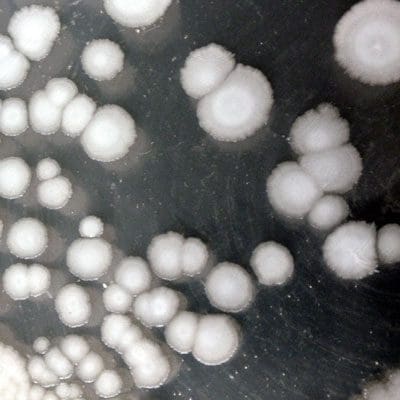
Get A Testing Quote
Bacillus subtilis
Structure and Physiology
Bacillus subtilis is a spore forming, motile, rod-shaped, Gram-positive, facultative aerobe. It is mostly found in soil and vegetation with an optimal growth temperature from 25-35 degrees Celsius. B. subtilis has the ability to produce and secrete antibiotics. The genomic structure of this microorganism contains five signal peptidase genes that are important for the secretion of these antibiotics. B.subtilis has shown to be capable of secreting polymyxin, difficidin, subtilin, and mycobacillin. The antibiotics are secreted during sporulation to increase the microorganism’s chance of survival and kill competing microbes. B.subtilis is used as a model organism for studying endospore formation in bacteria. Endospores of B. subtilis can tolerate harsh environmental conditions, such as UV exposure and high temperatures.
Transmission and Disease
B.subtilis is non-pathogenic but can contaminate food and be considered an opportunistic pathogen among the immuno-compromised. They are used on seeds, vegetables, and plants as a fungicide because of their ability to produce antibiotics. B.subtilis inhabits the root system of the plant competing with disease causing organisms. Some B. subtilis strains are capable of producing toxins for insects. These strains are used by farms to protect their crops.
Disinfection
B. subtilis endopores serve as one of the models for evaluating the effectiveness of sporicides and sterilants.
Notes
Cultivation of B. subtilis generally requires 3 to 4 days as the vegetative bacteria must be grown on a specific agar media to induce sporulation. B. subtilis spores are also an option for aerosol studies as they are non-pathogenic and are able to survive well upon aerosolization.
References
- Serra CR, Earl AM, Barbosa TM, Kolter R, Henriques AO. Sporulation during growth in a gut isolate of Bacillus subtilis. J Bacteriol. 2014 Sep.
- Hirooka K. Transcriptional Response Machineries of Bacillus subtilis Conducive to Plant Growth Promotion. Biosci Biotechnol Biochem. 2014 Sep.
Share

